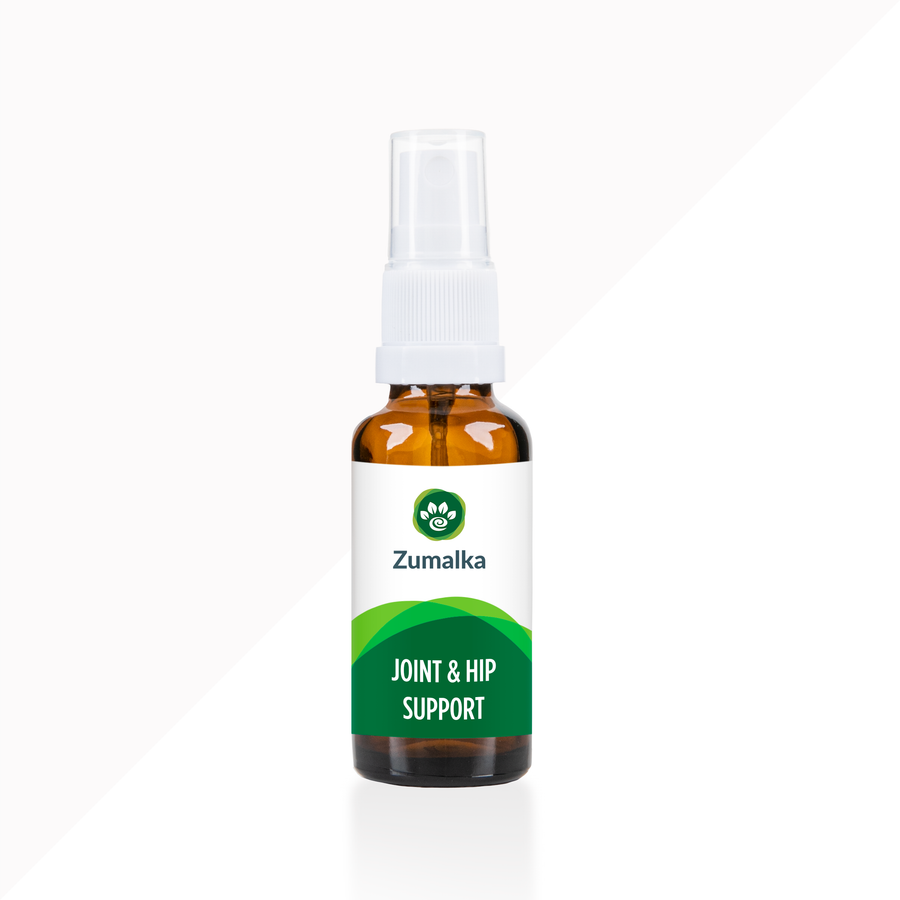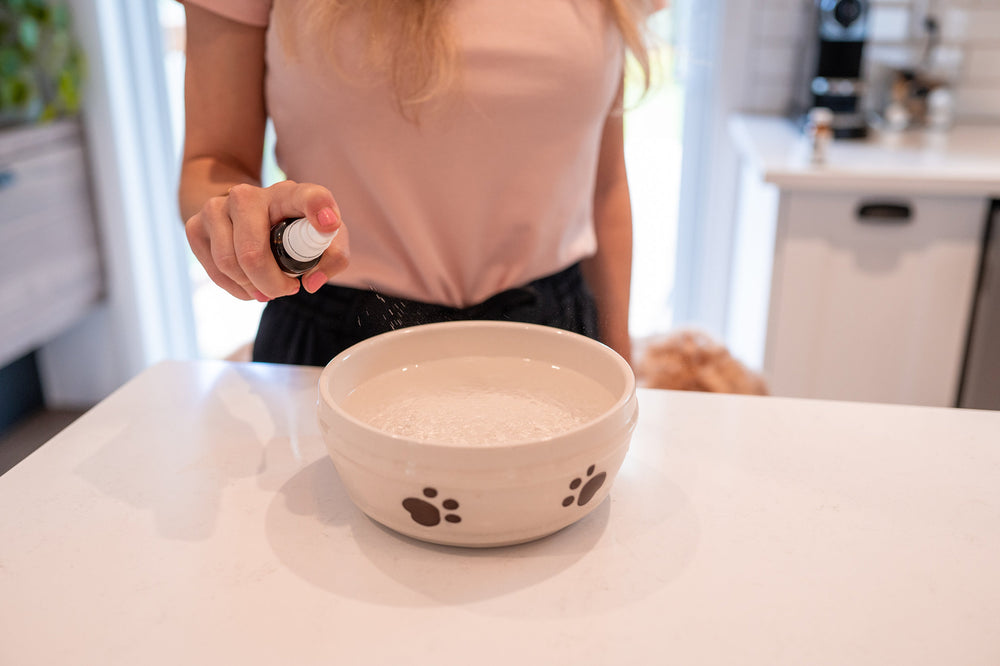Expert-Recommended: How to Support Joint Health in Aging Pembroke Welsh Corgis
As dogs enter their senior years, they often face age-related health challenges, with arthritis being one of the most common. This joint condition can cause pain, stiffness, and reduced mobility, impacting your dog’s quality of life.
While genetics can influence joint health, proactive care and preventative strategies can delay the onset of arthritis and ease existing symptoms. With the right management, you can help your senior dog stay comfortable, mobile, and happy for years to come.
This guide shares proven tips to help maintain your senior dog’s joint health while improving their comfort and mobility. It also covers holistic options, such as pet homeopathy, to support overall well-being.
Why Senior Pembroke Welsh Corgis are Prone to Joint Issues

Senior Pembroke Welsh Corgis are especially prone to joint issues due to their long backs, short legs, and genetic predisposition to conditions like hip dysplasia and arthritis. As they age, natural wear and tear on their joints can lead to stiffness, pain, and reduced mobility if not properly managed.
Arthritis in aging Pembroke Welsh Corgis is a degenerative joint condition that causes inflammation, pain, stiffness, and limited mobility. As protective cartilage wears down, bones may rub against each other, leading to discomfort and the formation of painful bone spurs.
Recognizing the signs of joint health problems in older Pembroke Welsh Corgis
Common signs of arthritis in senior dogs include limping, stiffness, and a noticeable reluctance to move, jump, or climb stairs. You may also see reduced activity levels or changes in behavior due to joint discomfort and pain.
Subtle early signs of arthritis often appear before obvious limping, making early detection especially important. Recognizing these changes early can help prevent long-term joint damage and improve your dog’s quality of life.
Key Strategies for Supporting Joint Health in Senior Pembroke Welsh Corgis

Supporting your senior Pembroke Welsh Corgi’s joint health is simpler than many pet owners realize. This section outlines key strategies to keep your aging dog comfortable, active, and in optimal condition.
Managing diet and weight to protect your senior Corgi’s joints
A balanced, nutritionally complete diet from puppyhood supports healthy joint development and helps prevent orthopedic issues linked to rapid weight gain. For senior Corgis, choose easily digestible foods enriched with joint-supporting nutrients like omega-3s, glucosamine, and chondroitin.
Together with glucosamine and chondroitin, omega-3 fatty acids, particularly those present in salmon and green-lipped mussels, help to lower inflammation and promote joint health. Additionally, bone broth contains important collagen, which enhances joint flexibility and mobility in general.
Maintaining a healthy weight is key to reducing joint strain and slowing the progression of arthritis in your dog. Regular vet visits and complementary treatments like pet homeopathy can support long-term joint health and overall vitality.
Avoiding treats with harmful ingredients, such as artificial preservatives and added sugars, is essential for managing inflammation and supporting joint health. Choosing natural, nutrient-rich options can make a big difference in your senior dog’s overall well-being.
Joint-friendly exercise for senior Pembroke Welsh Corgis
Regular, gentle exercise is essential for senior dogs, as it helps lubricate joints, improve circulation, and maintain muscle strength and flexibility. These benefits work together to support overall joint health and reduce stiffness and discomfort.
Low-impact exercises like daily walks, ideally two to three sessions of 15–20 minutes, and swimming are ideal for senior dogs with joint issues. These activities help maintain mobility and strength without putting undue stress on aging joints.
High-impact activities such as frequent running or jumping, particularly on hard surfaces, can worsen joint strain in senior dogs and should be avoided. Keep an eye out for signs of pain or fatigue, and adjust your dog’s activity level to ensure safe, comfortable movement.
Adapting your home for a senior Pembroke Welsh Corgi’s joint health
Orthopedic dog beds offer essential support by relieving pressure on sore joints and evenly distributing your senior dog’s weight. Adding a heating pad can further ease stiffness and provide soothing comfort for aging joints.
Improving traction is key to preventing slips and joint strain in senior dogs. Cover hardwood or tile floors with rugs, non-slip mats, or rubber runners. For added stability, consider using toe grips or supportive dog booties.
Accessibility aids like ramps or pet stairs can help senior dogs reach beds, furniture, or vehicles without straining their joints. Raised food and water bowls also reduce stress on the neck and shoulders, making mealtimes more comfortable.
For dogs with more advanced mobility challenges, tools like slings, wheelchairs, and orthopedic braces can provide essential support. These aids help maintain independence, reduce strain, and improve your senior dog’s overall quality of life.

Joint supplements and conventional medications for aging dogs
Before starting any supplements or medications, consult your veterinarian or a qualified pet homeopath to ensure they’re safe and appropriate for your dog. Human supplements can pose serious risks, so expert guidance is essential for supporting your pet’s joint health and overall wellness.
Glucosamine and chondroitin are key joint supplements that help repair cartilage, slow its tearing, and ease discomfort in aging dogs. Natural sources like beef trachea treats can also provide these beneficial compounds in a more whole-food form.
Omega-3 fatty acids offer strong anti-inflammatory benefits, helping to protect joints, minimize damage, and potentially reduce the need for pain medications. They are typically found in fish oil, premium dog foods, and certain raw bones.
MSM and collagen are valuable joint-supporting nutrients that help reduce inflammation, improve flexibility, and support cartilage repair. Including these supplements in your senior dog’s routine can enhance mobility and overall joint function.
Veterinarians can prescribe pain relief options such as NSAIDs, monoclonal antibody therapy, which targets pain signals and is safer for dogs with kidney or liver concerns, and other advanced treatments. CBD may also be considered under veterinary guidance as part of a comprehensive joint care plan.
Enhancing home pet care with premium natural products
JOINT & HIP SUPPORT – OPTIMAL is specially formulated to promote overall joint and hip health in dogs. This comprehensive kit supports mobility and flexibility while nourishing joints, ligaments, tendons, and even bone marrow. Ideal for aging pets, it provides full-spectrum support to help maintain comfort and active movement. This kit includes:
- JOINT & HIP SUPPORT is a natural homeopathic product formulated to help maintain mobility and comfort in your dog’s joints, hips, and tendons. It may support flexibility and ease occasional stiffness, especially during changes in weather or activity levels.
- TONICPET #1 is a natural homeopathic preparation that helps support the health and function of bones, muscles, ligaments, and joints. It may assist in maintaining tissue elasticity and promoting overall mobility.
- TONICPET #2 is a natural homeopathic product designed to help maintain healthy connective tissues. It may support the nourishment of tendons and ligaments and contribute to normal mineral balance for joint and tissue strength.
- TONICPET #4 is a natural homeopathic remedy that supports overall wellness and immune system balance. It may help promote healthy circulation, contributing to comfort in muscles and joints.
- SILI-MER G5 is a natural supplement that provides targeted support for connective tissue health. It may help maintain the strength and flexibility of tendons, ligaments, and joints to support your dog’s active lifestyle.
-
WBC+is a natural product formulated to support immune function and bone health. It may help promote healthy white blood cell production, assist in calcium absorption, and support overall skeletal strength.
Partner with a pet health professional
Twice-yearly veterinary wellness exams are essential for senior dogs, allowing for early detection of arthritis and other age-related conditions. These checkups often identify issues before visible symptoms appear, enabling timely care and better long-term health outcomes.
Veterinarians use diagnostic tools like X-rays to monitor the progression of arthritis and guide effective treatment plans. Therapeutic options such as acupuncture, laser therapy, and physical rehabilitation can ease discomfort, increase flexibility, and support your dog’s joint health.
Working closely with your veterinarian ensures a customized treatment plan tailored to your dog’s unique joint health needs. In some cases, consulting a pet homeopathy specialist can provide additional support and enhance your dog’s overall care.
A Final Word
With proactive care, regular monitoring, and strong collaboration with your veterinarian and pet homeopath, your senior Pembroke Welsh Corgi can enjoy a comfortable, active, and fulfilling life. Even with age-related challenges, early intervention and consistent support can make all the difference in maintaining joint health and overall well-being.
Supporting your Pembroke Welsh Corgi through their golden years is a meaningful way to give back the love and loyalty they’ve always shown you. With thoughtful care and compassion, you can help them enjoy this stage of life with comfort, happiness, and grace.
FAQs
What can I give my senior dog for his joints?
You can support your senior dog’s joints with vet-approved supplements like glucosamine, chondroitin, and omega-3s, along with a joint-friendly diet, low-impact exercise, and regular checkups to manage arthritis and improve mobility. SILI-MER G5 is also an excellent natural supplement to add to your pet’s daily diet to support long-term joint health.
What can I feed my dog to help with joint health?
Feed your dog a nutrient-rich diet containing omega-3 fatty acids, glucosamine, and SILI-MER G5. Choose high-quality dog food or supplements specifically designed to support joint health, reduce inflammation, and improve mobility.
What is the best dog food for senior joints?
The best dog food for senior joints includes high-quality protein, omega-3 fatty acids, glucosamine, and chondroitin. Look for formulas specifically made for senior dogs to support joint health, reduce inflammation, and maintain mobility.
What is a common nutritional consideration for senior dogs to support joint health?
Senior dogs need diets rich in omega-3 fatty acids, glucosamine, and chondroitin. Key nutrients that support joint health, reduce inflammation, and promote cartilage strength to help maintain comfort and mobility as they age.
What is the best diet for a senior dog with arthritis?
The best diet for a senior dog with arthritis includes high-quality protein, omega-3 fatty acids, glucosamine, and chondroitin. Choose easily digestible, anti-inflammatory foods formulated to support joint health, reduce pain, and improve mobility.
What not to feed a dog with arthritis?
Avoid feeding dogs with arthritis foods high in sugar, salt, artificial additives, or unhealthy fats, as these can increase inflammation. Also, steer clear of excessive calories that contribute to weight gain and joint strain.
What is the best meat for senior dogs?
The best meat for senior dogs is lean, high-quality protein like chicken, turkey, or fish. These options are easy to digest, support muscle maintenance, and provide essential nutrients for joint health and overall vitality.
What is the best oil for senior dogs?
The best oil for senior dogs is fish oil, rich in omega-3 fatty acids. It supports joint health, reduces inflammation, promotes a healthy coat, and boosts overall wellness in aging dogs.
Is rice ok for dogs with arthritis?
Yes, rice is safe for dogs with arthritis and can be included in a joint-friendly diet. It’s easy to digest and works well alongside anti-inflammatory foods to support overall health and comfort.
Should senior dogs eat wet or dry food?
Senior dogs can benefit from both wet and dry food, depending on their needs. Wet food aids hydration and is easier to chew, while dry food supports dental health. A vet or pet nutritionist can recommend the best option.
What food is the enemy of arthritis in older dogs?
Foods rich in omega-3 fatty acids, antioxidants, and anti-inflammatory ingredients, like fish, leafy greens, and turmeric, help combat arthritis in older dogs. These nutrients reduce inflammation, support joint health, and improve mobility in senior pets.








Leave a comment